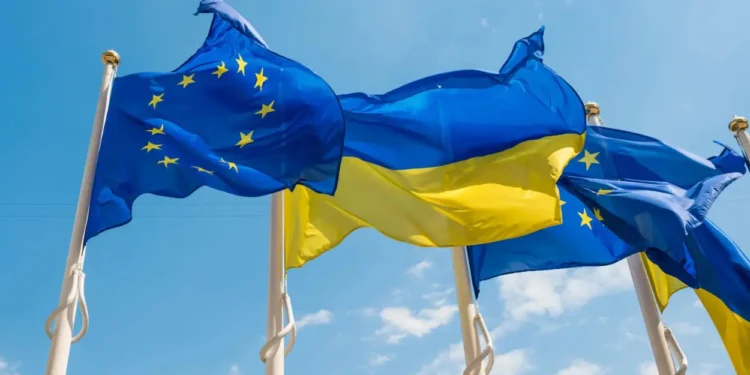Brussels (Brussels Morning) – EU Council extends trade liberalization for Ukraine, and strengthens safeguards for EU farmers. Signals ongoing support amid geopolitical tensions. Measures aimed at economic stability.
The European Council and Parliament have reached a preliminary deal on the extension of trade liberalization for Ukraine, furnishing protective standards for EU farmers. This renewal reaffirms the EU’s determined political and economic backing for Ukraine, after two years of Mocows’s unprovoked and unjustified military attack.
According to the Press of the European Council, at the exact time, the EU has chosen to reinforce the safety of sensitive agricultural products by beefing up protection already included in the currently relevant autonomous trade actions, which includes taking into account any negative impact on the market of one or several member states, rather than just on the EU demand as a whole. A new automatic protection will also be counted for certain susceptible products, such as poultry, eggs, sugar, oats, maize, groats and honey.
How is the EU Council Helping Ukraine?
The autonomous trade measures (ATMs) will permit Ukraine to continue rendering its own income from trade flows with the European Union, which is important to sustain its economy. Associated with the EU’s extensive military, monetary and humanitarian support, this will allow Ukraine to its long-term healing as well as its gradual integration into the European internal market.
What Are the Main Elements of the Regulation?
The rule will be enforced from 6 June 2024 until 5 June 2025 and involves the continued suspension of all special customs duties and quotas under the EU-Ukraine Association Agreement (DCFTA). The regulation will also contain two safeguard instruments to protect the EU market: a maintained version of the current mechanism, which will apply on the ground of regular monitoring, permitting the Commission to impose any standard provided that specific conditions are met; a new, automatic protection mechanism which will oblige the Commission to reintroduce tariff-rate allocations if imports of poultry, eggs, sugar, oats, maize, groats and honey surpass the arithmetic mean of amounts imported in the second half of 2021, 2022 and 2023.
What Are the Key Elements of the Provisional Agreement?
The key elements of the agreement include extending the scope of the automatic protection mechanism to include four additional commodities (oats, maize, groats and honey); compressing the time duration for activation of the automatic safeguard from 21 to 14 days; spreading the reference period to decide if imports exceed a certain point (adding the second half of 2021 to the period 2022-2023) and the Commission’s responsibility to improved monitoring of imports of grain, in certain wheat, and to use of the means at its disposal in the event of market disruptions, as well as a responsibility to take the necessary measures under the Association Agreement with Ukraine, as soon as the new ATMs are assumed, to pursue, through talks with Ukraine, the process of reciprocal tariff liberalisation.
EU Council’s Role in Geopolitical Support?
On 31 January 2024, the EU Commission proposed expanding the suspension of import duties and quotas on all imports from Ukraine to the EU for another year. The recommendation was presented in the context of Russia’s persisting war of aggression against Ukraine, the resulting need to persist in supporting Ukraine economically, and assuming that Ukraine was granted EU candidate status in June 2022 and acquisition negotiations were opened in December 2023.




